2000-12-08 09:52
"We will concentrate on stabilizing freight rates."
Korea Shipping Gazette: We are just around the corner of this, the fir
st year of the 21st century. What are the main policies and results th
at the KNFC pursued?
Byun: For this year, we could say that we have concentrated on three a
reas roughly: rates stabilization in the Korea/Japan trade, cost savin
gs, and trade diversity. But all of these issues were judged by how mu
ch profit the KNFC members earned in the Korea/Japan trade. Under seri
ously tough circumstances, just like any other trade route, this might
be the hardest year to turn a profit because economic systems brought
about high costs, oil prices hit the ceiling, and there were also hig
her operating costs and asking prices from shippers to lower logistic
costs. To my dis appointment, the stabilization issue in trade failed
to gain competitiveness by deploying too many vessels in both bulk car
riers and containers, while the markets have been flooded with registe
red forwarders.
To get over these matters, the bunker adjustment factor (BAF) needs to
be adjusted for bulk carriers and to be instituted for containers. Ex
ecutive officers of KNFC have asked to raise tariffs for irregular car
riers as well. We had port usages in the Port of Osaka lowered where o
ur member carriers shared facilities.
Korea Shipping Gazette: Korea/Japan trade was also well known as the m
ost stable trade route with aggressive Neutral Body activity and the p
ooling system. Coming this year, however, it met with many domestic an
d overseas difficulties. I've heard that the KNFC started to watch act
ivity in this trade. Do you have any special plans?
Byun: You can say that again. Korea/Japan trade has emerged as a stabl
e trade because of the pooling system, Neutral Body activity, and the
alliance system, although it is also true that the trade lay under ser
ious conditions. Worried about recent situations, most member carriers
requested special measures. Since October, we decided to run the Neut
ral Body through several meetings and hired a person to be in charge o
f it. We are also preparing now to watch over tariffs. On reefer conta
iners, we started to watch tariffs trading all over the Pusan area and
will keep watching over the tariffs in Seoul as well as all of Japan.
We thought that the most important thing is to stay in the black by r
estoring the tariffs. We are going to strengthen the Neutral Body acti
vities continuously, and will react immediately, trying to reflect mar
ket conditions.
Korea Shipping Gazette: You know the five Korean shipping companies th
at composed a consortium to attend to the Pusan/Posiet according to ag
reement in the Korea/Russia Maritime Council last year... are there an
y new activities to be introduced?
Byun: At first, this consortium started with 8 shipping companies that
volunteered to attend to the Pusan/Posiet trade. Through surveys in t
he field, the pressure to transport cargoes to North China via Russian
ports left only 5 shipping companies in the consortium. At first we a
sked Russia to call at Vladivostok, but instead, only Posiet was allow
ed.
Also, this service bears certain dangers for private companies because
it is a new course into Hunchun and Youngil via China and Russia. So
the five companies might try to diversify trade routes and use them as
a stepping stone to get into Vladivostok. KNFC could work as gateway
to open Posiet and Vladivostok from outside, and stabilize the trade.
Korea Shipping Gazette: Inter-Korean business cooperation has been spe
eding up. It has also been heating up a behind the scenes negotiation
for related groups and industries to get the rights to transport cargo
es in inter-Korean projects. I heard that you have been totally dedica
ted to acquiring transport rights for member companies interested in c
argo transportation for this project.
Byun: Someone regarded inter-Korean trade as not being related to ocea
ngoing carriers because it was classified as nearsea trade. But when y
ou look into this market, you just find that it is essential for ocean
going carriers to take part in this trade in the case of supplying ch
arity and cargoes for inter-Korean cooperation and reconciliation. Con
sidering the poor port facilities in North Korea, our members that own
small or mid-sized vessels equipped with cranes on board are the most
appropriate ones for this business. So we at the KNFC suggested many
times to the Ministry of Unification, Korean Red Cross, and the Minist
ry of Maritime Affairs and Fisheries, to use our members' vessels in t
he inter-Korean project. These efforts resulted in ocean going vessels
being able to participate in carrying charity projects that have been
biased towards some exclusive nearsea carriers.
Taking into account the circumstances between the two Koreas, I would
like to say that we need more organized procedures rather than ad hoc
sloppy ones.
To build closer relations more effectively, we have to hurry to set up
a cooperative foundation between South Korean shipping companies and
their North Korean counter parts. I think it will be impossible for No
rth Korea to share the burden equally because of their poor port facil
ities. We, however, could try to avoid this danger by letting South Ko
rean shipping companies provide vessels and their North Korean counter
parts could take responsibility for port usage and cargo acquisition.
If we consider that the out-of-datedness of North Korean port faciliti
es is due to lack of interaction with overseas countries, we would jus
t focus on China and Japan, which are the dominant trading partners of
North Korea. We might develop West Sea trade calling at Nampo-Inchon-
Japan (or China) and East Sea trade calling at Najin-Pusan-Japan (or C
hina).
Korea Shipping Gazette: I know that KNFC members have expanded their s
ervice areas and started calling at new places nowadays. The KNFC migh
t need to refresh its position and expand business. What is your opini
on on this?
Byun: It is such a pleasing thing for members to expand and develop th
eir services into new areas. You know China and Japan already have est
ablished their transportation system covering from Southeast Asia incl
uding Bengal to Northeast Asia, Manchuria and Russia.
In my personal opinion, I don't agree with that position. Members' exp
ansion of their services doesn't relate to the KNFC. The most interest
ing part is turning a profit in whatever trade it is. We can judge the
KNFC's role by how much we contribute to our members' profitability.
Therefore, we are going to develop our pooling system and NB in over-c
ompetition trade just like in Korea/Japan trade, to restore falling ra
tes and to resolve all dilemmas, for example, bulk carriers' anxieties
in China and Russia over public opinion.
Korea Shipping Gazette: What will be the KNFC's main policies and busi
ness in 2001?
Byun: Of course to make rates stable. The NB, with respect to containe
rs, will keep going. That started from this December and will be appli
ed to Japan. The NB will also audit Japan trade as well as domestic tr
ade. We will run the NB systematically and continuously.
st year of the 21st century. What are the main policies and results th
at the KNFC pursued?
Byun: For this year, we could say that we have concentrated on three a
reas roughly: rates stabilization in the Korea/Japan trade, cost savin
gs, and trade diversity. But all of these issues were judged by how mu
ch profit the KNFC members earned in the Korea/Japan trade. Under seri
ously tough circumstances, just like any other trade route, this might
be the hardest year to turn a profit because economic systems brought
about high costs, oil prices hit the ceiling, and there were also hig
her operating costs and asking prices from shippers to lower logistic
costs. To my dis appointment, the stabilization issue in trade failed
to gain competitiveness by deploying too many vessels in both bulk car
riers and containers, while the markets have been flooded with registe
red forwarders.
To get over these matters, the bunker adjustment factor (BAF) needs to
be adjusted for bulk carriers and to be instituted for containers. Ex
ecutive officers of KNFC have asked to raise tariffs for irregular car
riers as well. We had port usages in the Port of Osaka lowered where o
ur member carriers shared facilities.
Korea Shipping Gazette: Korea/Japan trade was also well known as the m
ost stable trade route with aggressive Neutral Body activity and the p
ooling system. Coming this year, however, it met with many domestic an
d overseas difficulties. I've heard that the KNFC started to watch act
ivity in this trade. Do you have any special plans?
Byun: You can say that again. Korea/Japan trade has emerged as a stabl
e trade because of the pooling system, Neutral Body activity, and the
alliance system, although it is also true that the trade lay under ser
ious conditions. Worried about recent situations, most member carriers
requested special measures. Since October, we decided to run the Neut
ral Body through several meetings and hired a person to be in charge o
f it. We are also preparing now to watch over tariffs. On reefer conta
iners, we started to watch tariffs trading all over the Pusan area and
will keep watching over the tariffs in Seoul as well as all of Japan.
We thought that the most important thing is to stay in the black by r
estoring the tariffs. We are going to strengthen the Neutral Body acti
vities continuously, and will react immediately, trying to reflect mar
ket conditions.
Korea Shipping Gazette: You know the five Korean shipping companies th
at composed a consortium to attend to the Pusan/Posiet according to ag
reement in the Korea/Russia Maritime Council last year... are there an
y new activities to be introduced?
Byun: At first, this consortium started with 8 shipping companies that
volunteered to attend to the Pusan/Posiet trade. Through surveys in t
he field, the pressure to transport cargoes to North China via Russian
ports left only 5 shipping companies in the consortium. At first we a
sked Russia to call at Vladivostok, but instead, only Posiet was allow
ed.
Also, this service bears certain dangers for private companies because
it is a new course into Hunchun and Youngil via China and Russia. So
the five companies might try to diversify trade routes and use them as
a stepping stone to get into Vladivostok. KNFC could work as gateway
to open Posiet and Vladivostok from outside, and stabilize the trade.
Korea Shipping Gazette: Inter-Korean business cooperation has been spe
eding up. It has also been heating up a behind the scenes negotiation
for related groups and industries to get the rights to transport cargo
es in inter-Korean projects. I heard that you have been totally dedica
ted to acquiring transport rights for member companies interested in c
argo transportation for this project.
Byun: Someone regarded inter-Korean trade as not being related to ocea
ngoing carriers because it was classified as nearsea trade. But when y
ou look into this market, you just find that it is essential for ocean
going carriers to take part in this trade in the case of supplying ch
arity and cargoes for inter-Korean cooperation and reconciliation. Con
sidering the poor port facilities in North Korea, our members that own
small or mid-sized vessels equipped with cranes on board are the most
appropriate ones for this business. So we at the KNFC suggested many
times to the Ministry of Unification, Korean Red Cross, and the Minist
ry of Maritime Affairs and Fisheries, to use our members' vessels in t
he inter-Korean project. These efforts resulted in ocean going vessels
being able to participate in carrying charity projects that have been
biased towards some exclusive nearsea carriers.
Taking into account the circumstances between the two Koreas, I would
like to say that we need more organized procedures rather than ad hoc
sloppy ones.
To build closer relations more effectively, we have to hurry to set up
a cooperative foundation between South Korean shipping companies and
their North Korean counter parts. I think it will be impossible for No
rth Korea to share the burden equally because of their poor port facil
ities. We, however, could try to avoid this danger by letting South Ko
rean shipping companies provide vessels and their North Korean counter
parts could take responsibility for port usage and cargo acquisition.
If we consider that the out-of-datedness of North Korean port faciliti
es is due to lack of interaction with overseas countries, we would jus
t focus on China and Japan, which are the dominant trading partners of
North Korea. We might develop West Sea trade calling at Nampo-Inchon-
Japan (or China) and East Sea trade calling at Najin-Pusan-Japan (or C
hina).
Korea Shipping Gazette: I know that KNFC members have expanded their s
ervice areas and started calling at new places nowadays. The KNFC migh
t need to refresh its position and expand business. What is your opini
on on this?
Byun: It is such a pleasing thing for members to expand and develop th
eir services into new areas. You know China and Japan already have est
ablished their transportation system covering from Southeast Asia incl
uding Bengal to Northeast Asia, Manchuria and Russia.
In my personal opinion, I don't agree with that position. Members' exp
ansion of their services doesn't relate to the KNFC. The most interest
ing part is turning a profit in whatever trade it is. We can judge the
KNFC's role by how much we contribute to our members' profitability.
Therefore, we are going to develop our pooling system and NB in over-c
ompetition trade just like in Korea/Japan trade, to restore falling ra
tes and to resolve all dilemmas, for example, bulk carriers' anxieties
in China and Russia over public opinion.
Korea Shipping Gazette: What will be the KNFC's main policies and busi
ness in 2001?
Byun: Of course to make rates stable. The NB, with respect to containe
rs, will keep going. That started from this December and will be appli
ed to Japan. The NB will also audit Japan trade as well as domestic tr
ade. We will run the NB systematically and continuously.
많이 본 기사
- 야권 안전운임제 재도입 추진…정부·수출기업 난색캐나다 항만 파업 심화…西밴쿠버·東몬트리올 봉쇄수요 강세에 컨운임지수 3주 연속 상승…동남아 두자릿수↑부산신항웅동개발, 현대글로비스에 웅동지구 2단계 물류부지 공급KSS해운, 3분기 영업익 280억…31%↑국내 건설사, 베트남 하이퐁에 복합물류센터 건설대선조선, 그리스 선사에 1000TEU급 컨테이너선 1척 인도스마트 보세운송 신고·관리서비스로 항만물류 활성화 힘 보탠다中 상하이항, 올해 9개월 컨처리량 3910만TEU ‘역대최대’“입거수리 영향” 대한해운, 3분기 영업익 9% 감소한 678억원
- BDI 1692포인트…중대형선 시장서 물동량 강세 이어가프랑스 CMA CGM, 3분기 순이익 3.8조…전년比 7배↑정기선 HD현대 부회장, 1년만에 수석부회장 승진광양 율촌산단에 친환경 선박 전문화 공장 세운다BPA-해수부, ‘해외물류센터’로 중소·중견기업 수출 돕는다IPA, 컨터미널 운영사와 내년 운영 방향 청사진 공유YGPA 박성현 사장, ‘아동학대 예방’ 릴레이 참여UPA·화주물류협의회·탱크터미널협의회, 물동량 증대 방안 모색CJ대한통운, 美 조지아 콜드체인 물류센터 개소…시장 공략 가속화DHL코리아, 기아와 맞춤 친환경차 개발 ‘맞손’





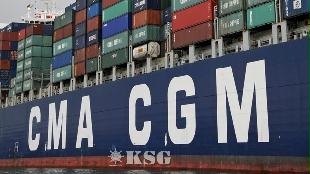
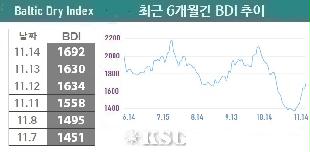
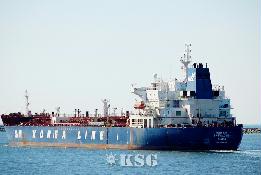
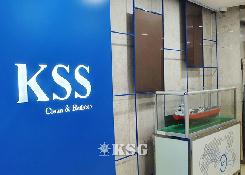
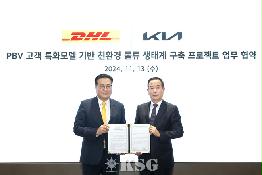
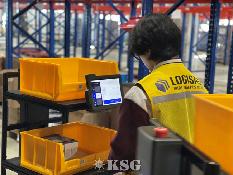

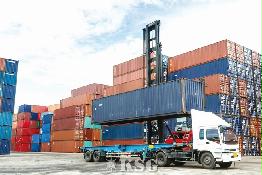
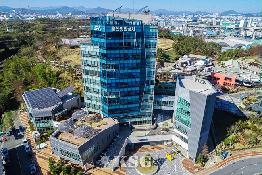
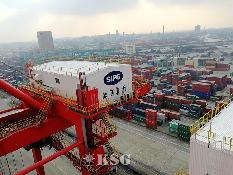
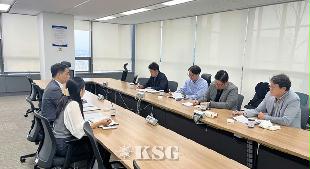
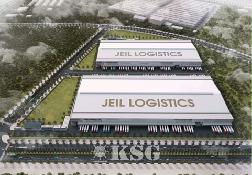
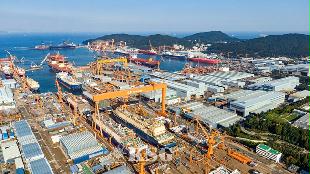
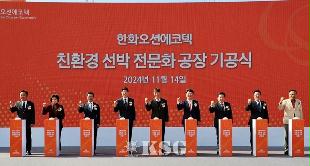

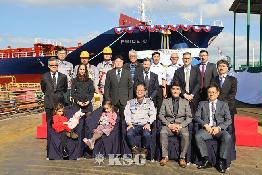
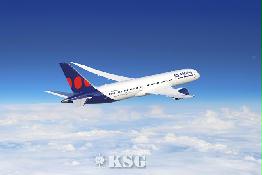
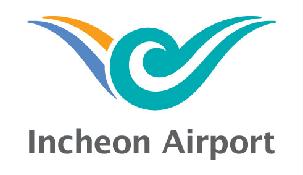
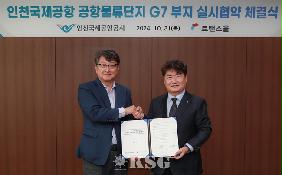

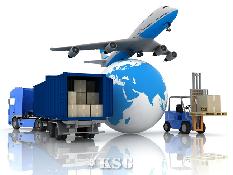
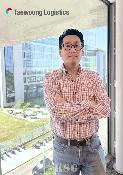
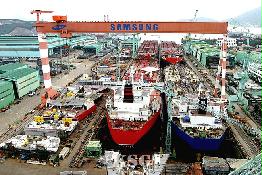
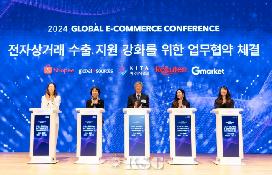
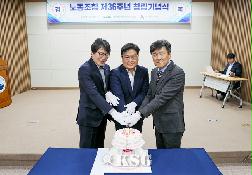
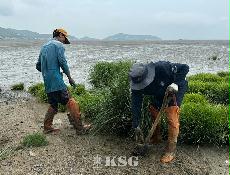
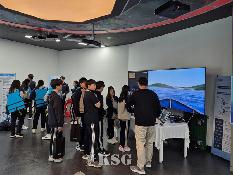
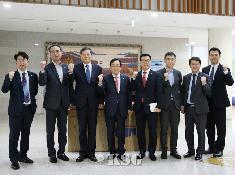
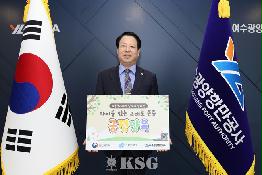
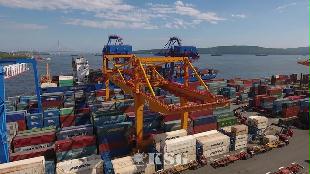
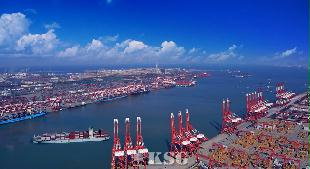
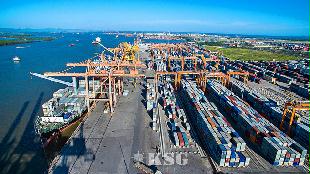
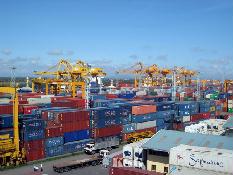

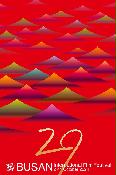




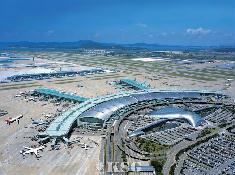
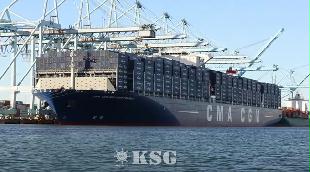
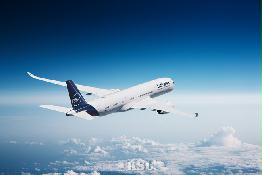
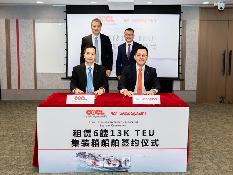
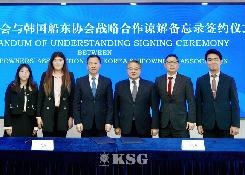









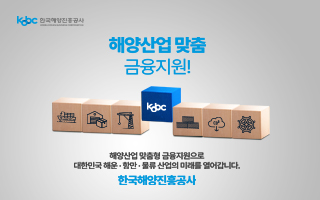












0/250
확인